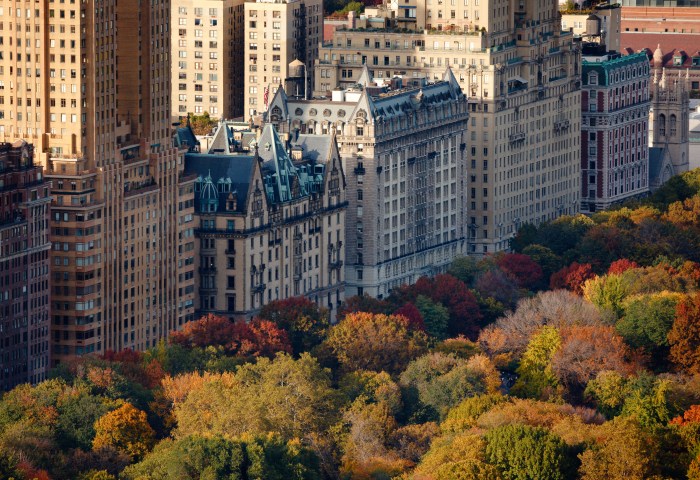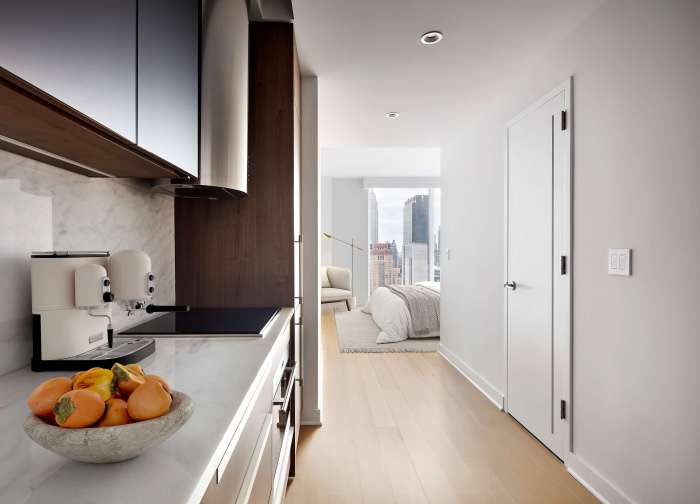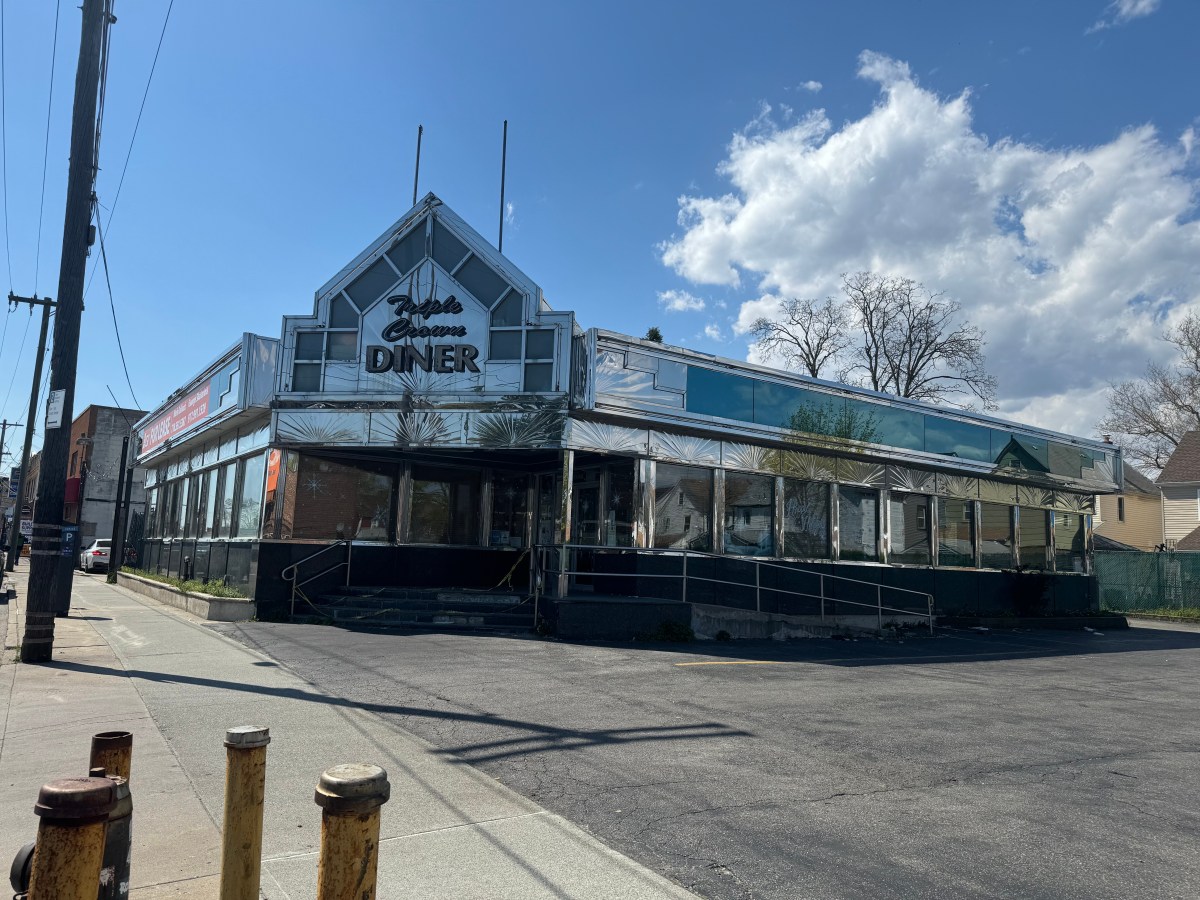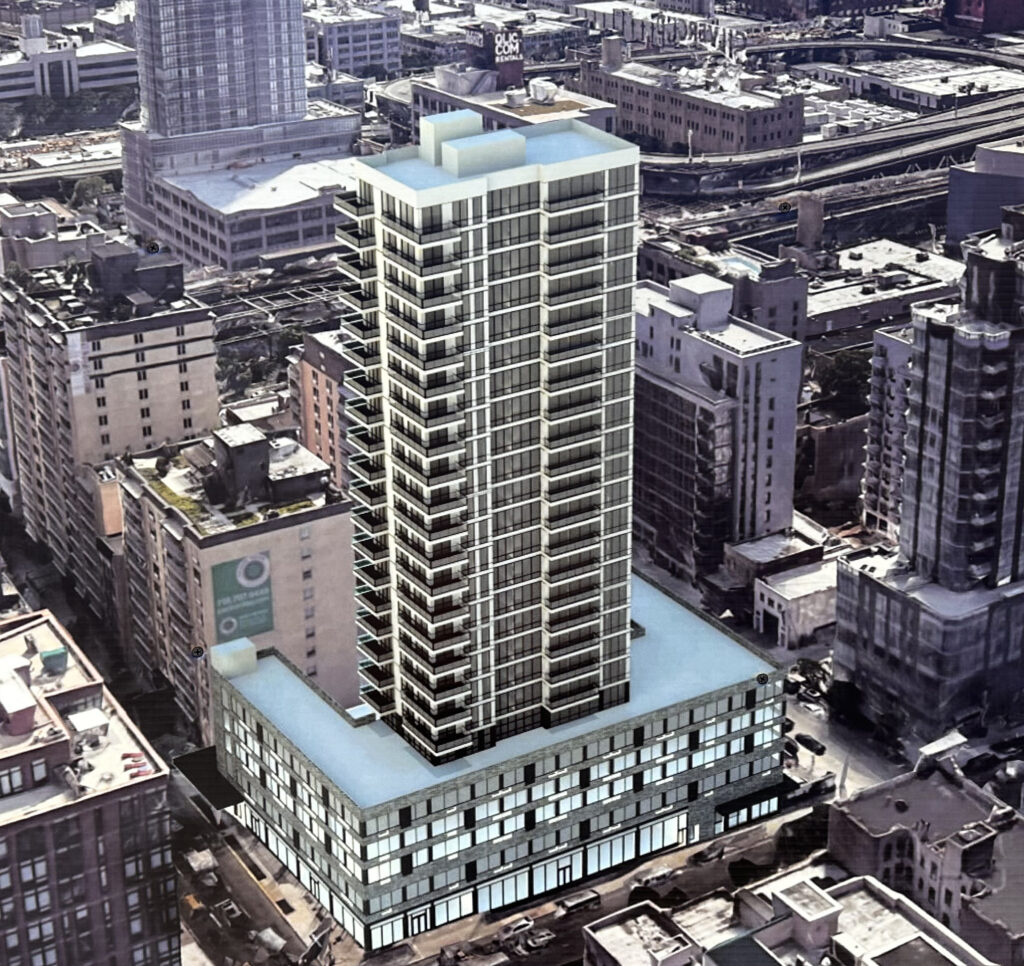More than 200 people from neighborhoods across the city took to the steps of City Hall over the weekend to demonstrate against an administration they argue has been beholden to real estate interests.
Protesters came with a long and diverse list of projects that had drawn ire: Chinatown residents opposed a plan to build a new jail at 80 Centre St.; Upper East Siders said they are tired of supertall residential towers marring the skyline; and a third group argued an excess number of bars is impairing New Yorkers’ quality of life.
But nearly all of the 70 groups at the rally, which was organized by Human-Scale NYC, seemed to share the concern that a boom of luxury development from Harlem to Crown Heights to Long Island City is prompting small businesses to shutter, residents to leave their longtime homes and an increasingly gilded-city to shun those who cannot afford it.
“New York isn’t just for oligarchs and elites — it’s for people. It’s for families, working people,” said Hell’s Kitchen resident Tim Tanner, of Neighborhoods United, a group that believes an oversaturation of bars is reducing the quality of life in the city.
Large projects disrupt communities, according to Lisa Mercurio, a founding member of the East River 50s Alliance, which pushed the City Council to rezone Sutton Place while fighting a 800-foot-tall condo project.
"Towers for nonresident billionaires and real estate investors are forming impenetrable walls surrounding our waterfronts and parks," Mercurio said.
LaShaun Ellis, who opposes proposed high-rise towers that she fears will cast shadows on the Brooklyn Botanic Garden, said communities’ opposition to such projects goes far beyond aesthetics and design preferences.
“Excess development does not just ruin views and cast shadows, it ruins the economy of an area,” Ellis said.
The rally caught the attention of passers-by, who were touring City Hall through an annual architectural appreciation event organized by Open House New York. Many stopped to peer at demonstrators as they chanted, "NYC is not for sale."
The mayor’s office did not respond to a request for comment.
In a written statement, John Banks, president of the Real Estate Board of New York, said the demonstrators’ requests would only drive housing prices up.
"As our population grows, NIMBY efforts to oppose development do little but increase pressure on a limited housing supply," the statement said. "The result is increasing rents and further economic and demographic segregation of the city. Human-Scale NYC should recognize that New York needs more housing production in every neighborhood for all income levels instead of pushing exclusionary zoning proposals that will exacerbate the housing crisis."
After years of fielding concerns about mom-and-pop shops and small enterprises closing, the City Council’s Committee on Small Business has scheduled a hearing later this month on the Small Business Jobs Survival Act, which would require landlords to give commercial tenants 180 days notice about whether they intend to renew their leases, generally entitle such tenants to leases of at least 10 years and allow them to get a mediator and arbitrator involved if they feel the terms proposed by their landlord are unfair.
In a column for Real Estate Weekly, Banks blasted the bill as unconstitutional and noted that similar commercial rent-control measures have languished in the City Council for the past three decades.
Correction: A prior version of this story misidentified the gender of LaShaun Ellis.

















